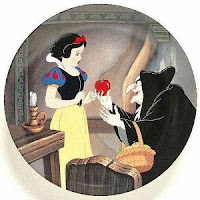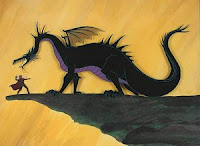Children spend a large amount of time in front of the television set. I want to explore the television shows and movies I watched as a child and discuss the gender messages I received from them.
Up first is Power Rangers. There’s the boy rangers who wear green, red, and blue. Then there are the girls who wear pink and yellow. There were also rangers who wore black, white, and orange (also boys). It’s interesting how outnumbered the girl rangers are. It’s also interesting that they wear traditionally “girl colors.” When I was looking up google images of the Power Rangers, trying to reacquaint myself the show, I found this image:

 Notice how the two girls are positioned differently than the rest of the rangers. Although they are all dressed the same, this immediately sets them apart from the males. Their poses also seem to draw attention to their feminine figures. Historically, the two female characters were seen as less tough than the boys. I remember boys scorning them for being wimps.
Notice how the two girls are positioned differently than the rest of the rangers. Although they are all dressed the same, this immediately sets them apart from the males. Their poses also seem to draw attention to their feminine figures. Historically, the two female characters were seen as less tough than the boys. I remember boys scorning them for being wimps.I will admit that I was a Star Wars junkie as a child. My father had me watch all three of the original films before preschool, and I ate them up. Gender roles are very distinct in Star Wars. The main male characters are Jedi--the physical and mental elite of their world. Women play a minor role. There’s Aunt Beru who gets murdered before she’s had five lines. There are scantily clad random female dancers just there for decoration. The exception is Princess Leia. She is actually a strong female character with a brain and attitude. But does she get to be a Jedi? Nope. Despite the fact that her father is one of the strongest Jedi in the universe or that her brother is the Chosen One of the Jedi, no one mentions giving her any training. Sure, she gets a blaster, but she doesn’t use it very much, because she’s always busy waiting around to be rescued by the males.
I also spent an enormous amount of my childhood watching classic Disney movies. Could there really be a more negative gender image for children to be consuming? Without fail, there’s the girl (probably a princess) who has this really terrible life. You know, she has to clean for her evil stepmother/stepsisters, she feels trapped in the palace life with her pet tiger and wants to explore the city, she has to swim around all the time and she’s sick of it, she’s too beautiful and it’s pissing off the queen, or maybe she’s just been asleep for a very long time. And then you have the man. He swoops in and does romantic things. The two dance all night and then he puts a shoe on her foot, he takes her for a ride on his magic carpet, he loves her even though she’s mute, he rides in on his white horse and informs her that he loves her even though he’s never seen her before, or he uses his lips to end her slumber. There’s always the idea that the women are completely helpless and need saving.

 Jasmine needed someone to save her from being Jafar’s slave girl.
Jasmine needed someone to save her from being Jafar’s slave girl.


Not once does one of these women take things into their own hands and save themselves. That would be silly. Instead they cower behind the first one-dimensional man that comes along. And when the battle scene is over, and their man has triumphed, they get married immediately. Girls are seeing the overwhelming message that it is their job to be helpless, soft, and sensitive. Boys are realizing that it’s their job to be strong, aggressive, and tough.
So why are these messages generated? People feel uncomfortable when gender norms are broken. Making very young girls and boys see very specific views of the way they are supposed to behave is a way of assuring that gender norms are followed, making everyone happier and more comfortable. It’s a simple fact that humans like people to fit the pre-determined molds in their heads. In general, we are not comfortable with people who challenge what is considered normative.


